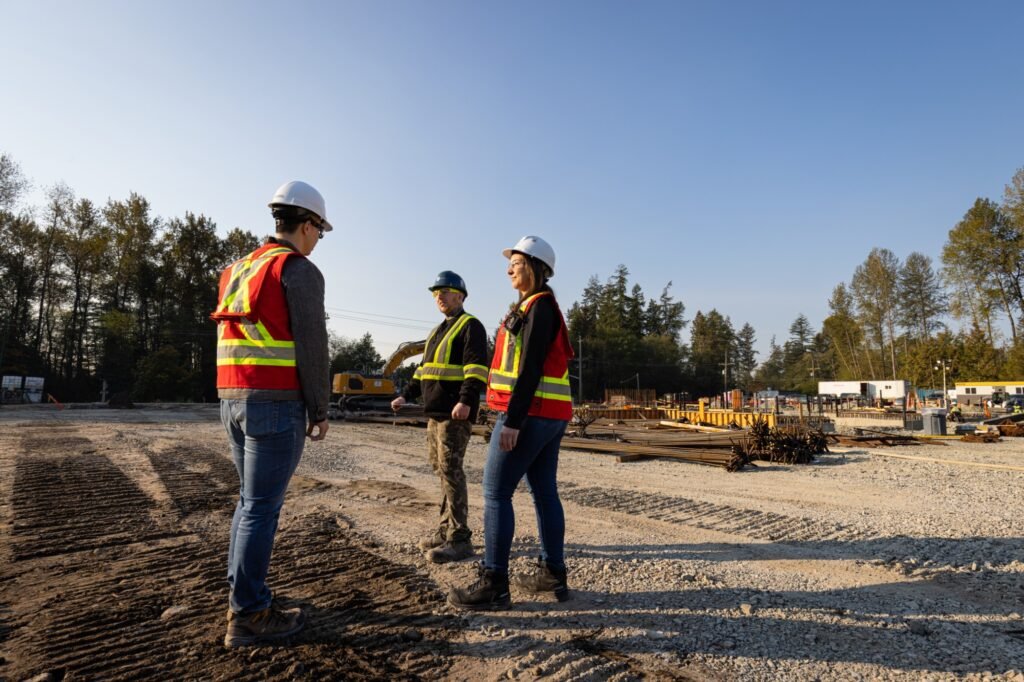LABOUR CONTRACTOR PUBLIC IN E-STATE NIRMAN NIGAM estatenirmannigam.in

A labor contractor, also known as a labor broker or employment agency, is a person or company that provides labor services to businesses, typically in industries such as construction, agriculture, manufacturing, and hospitality. Labor contractors act as intermediaries between employers seeking temporary or contract labor and workers who are looking for employment opportunities. E-STATE NIRMAN NIGAM estatenirmannigam.in
In this comprehensive exploration, we’ll delve into the role and functions of labor contractors, their impact on the labor market, the advantages and disadvantages associated with their use, the legal and ethical considerations, and the broader socio-economic implications. E-STATE NIRMAN NIGAM estatenirmannigam.in
- Introduction to Labor Contractors
Labor E-STATE NIRMAN NIGAM estatenirmannigam.incontractors play a crucial role in facilitating the employment process, especially in industries characterized by seasonal demand, fluctuating workloads, or specialized skill requirements. They source, recruit, and deploy workers to client companies on a temporary or project basis. These workers may include manual laborers, skilled tradespeople, agricultural workers, and even professionals in sectors like healthcare or information technology.
- Functions of Labor Contractors E-STATE NIRMAN NIGAM estatenirmannigam.in
a. Recruitment and Selection: Labor contractors actively seek out potential workers through various channels, including job fairs, online platforms, referrals, and community outreach. They assess candidates’ qualifications, skills, and availability to match them with suitable job opportunities.

b. Placement and Deployment: E-STATE NIRMAN NIGAM estatenirmannigam.inOnce hired, workers are assigned to specific assignments or projects based on client needs. Labor contractors manage the logistics of transporting workers to job sites, ensuring they have the necessary equipment, tools, and training to perform their duties.

c. Administrative Support: Labor E-STATE NIRMAN NIGAM estatenirmannigam.incontractors handle administrative tasks such as payroll processing, compliance with labor regulations, and managing employee benefits. They may also provide support services like safety training, supervision, and performance monitoring. E-STATE NIRMAN NIGAM estatenirmannigam.in
d. Conflict Resolution: E-STATE NIRMAN NIGAM estatenirmannigam.inIn cases of disputes or grievances between workers and employers, labor contractors often serve as intermediaries to resolve conflicts amicably and maintain positive relationships between all parties involved.
- Advantages of Labor Contractors
a. Flexibility: Hiring through labor contractors allows businesses to adjust their workforce size and composition according to fluctuating demand, without the long-term commitment associated with permanent hires.
b. Cost Savings: Employing temporary workers through labor contractors can be more cost-effective than hiring full-time employees, as companies E-STATE NIRMAN NIGAM estatenirmannigam.incan avoid expenses such as benefits, insurance, and overhead costs.

c. Specialized Expertise: Labor contractors may specialize in certain industries or skill sets, allowing them to provide access to highly skilled workers who are not readily available in the local labor market.
d. Risk Mitigation: Labor contractors assume responsibility for aspects such as compliance with labor laws, worker safety, and liability insurance, reducing the legal and financial risks for client companies.
- Disadvantages of Labor Contractors E-STATE NIRMAN NIGAM estatenirmannigam.in
a. Quality Concerns: Employers may encounter challenges in ensuring the quality and reliability of temporary workers supplied by labor contractors, particularly if there is limited oversight or screening processes in place. E-STATE NIRMAN NIGAM estatenirmannigam.in
b. Dependency Issues: Over-reliance on labor contractors can create dependency issues for businesses, as they may struggle to retain institutional knowledge or develop a stable, skilled workforce in the long

term.
c. Ethical Considerations: Critics argue that labor contractors can perpetuate exploitative labor practices, such as low wages, poor working conditions, and lack of job security, especially for vulnerable populations such as migrant workers E-STATE NIRMAN NIGAM estatenirmannigam.in or undocumented immigrants.
d. Regulatory Compliance: Employers must navigate complex labor laws and regulations when engaging with labor contractors, ensuring compliance with requirements related to minimum wage, overtime pay, worker classification, and workplace safety. E-STATE NIRMAN NIGAM estatenirmannigam.in
- Legal and Ethical Considerations
a. Worker Classification: One of the key legal issues surrounding labor contractors is the classification of workers as employees or independent contractors. Misclassification can have significant implications for wage and hour laws, tax obligations, and eligibility for benefits. E-STATE NIRMAN NIGAM estatenirmannigam.in
b. Fair Labor Standards: Labor contractors must adhere to federal and state labor laws governing minimum wage, overtime pay, child labor, and other labor standards to ensure fair and lawful

employment practices.
c. Worker Protections: To safeguard the rights and well-being of workers, regulations may impose requirements on labor contractors related to safety training, health E-STATE NIRMAN NIGAM estatenirmannigam.ininsurance, worker’s compensation, and other benefits.
d. Transparency and Accountability: Ethical considerations dictate that labor contractors should operate transparently, providing clear information to both workers and clie E-STATE NIRMAN NIGAM estatenirmannigam.innt companies about terms of employment, compensation, and rights and

responsibilities.
- Socio-Economic Implications
a. Income Inequality: The use of labor contractors has been linked to widening income inequality, as temporary workers often receive lower wages and fewer benefits E-STATE NIRMAN NIGAM estatenirmannigam.in compared to their permanently employed counterparts.
b. Labor Market Dynamics: Labor contractors can influence the dynamics of local labor markets by supplying workers from outside the area, which may affect wages, unemployment rates, and competition for jobs among local residents. E-STATE NIRMAN NIGAM estatenirmannigam.in

c. Social Cohesion: The prevalence of temporary and contingent work arrangements facilitated by labor contractors can erode social cohesion and stability within communities, as workers may experience greater insecurity and vulnerability to economic shocks. E-STATE NIRMAN NIGAM estatenirmannigam.in
d. Policy Implications: Policymakers face challenges in balancing the need for labor market flexibility with the protection of worker rights and social welfare. Regulatory frameworks must evolve to address emerging issues related to the gig economy, platform work, and non-traditional employment relationships.
- Future Trends and Outlook
The landscape of labor contracting E-STATE NIRMAN NIGAM estatenirmannigam.in is continuously evolving in response to technological advancements, demographic shifts, and regulatory changes. Trends such as the rise of online labor platforms, increased scrutiny of worker classification practices, and efforts to enhance worker protections will shape the future trajectory of the industry.

Conclusion
Labor E-STATE NIRMAN NIGAM estatenirmannigam.in contractors play a multifaceted role in the modern economy, serving as intermediaries between employers and workers in various industries. While they offer benefits such as flexibility and cost savings, their use also raises ethical, legal, and socio-economic concerns that warrant careful consideration. By examining the functions, advantages, disadvantages, and broader implications of labor contracting, stakeholders can better understand its impact on the labor market and society as a whole E-STATE NIRMAN NIGAM estatenirmannigam.in

